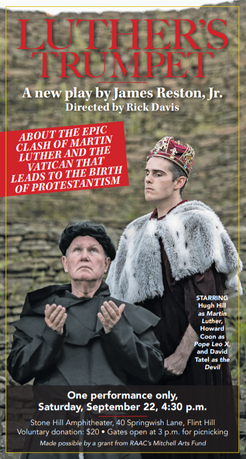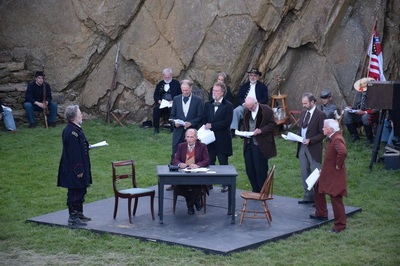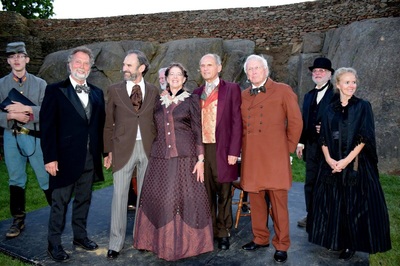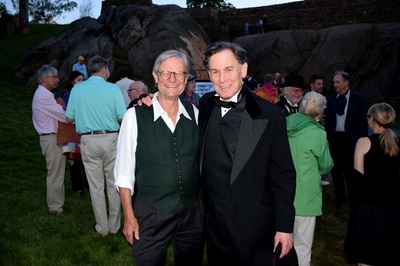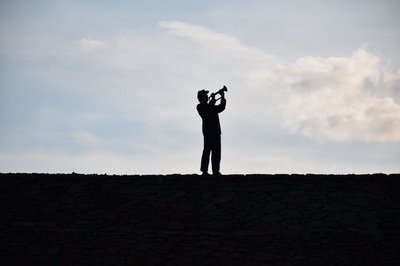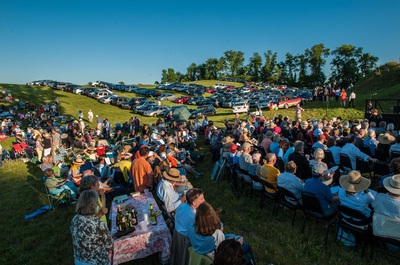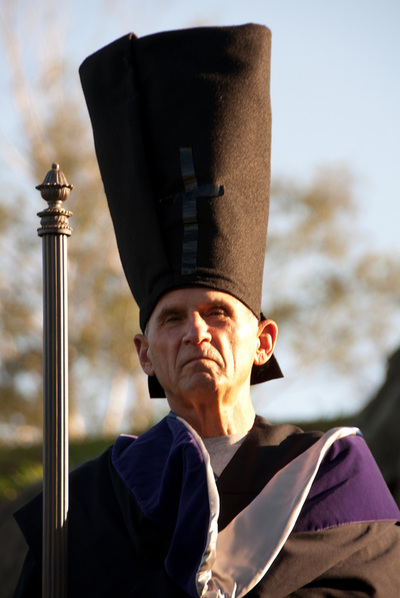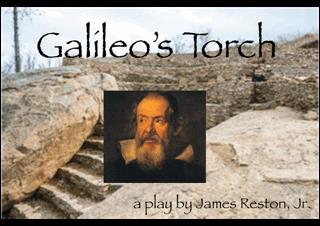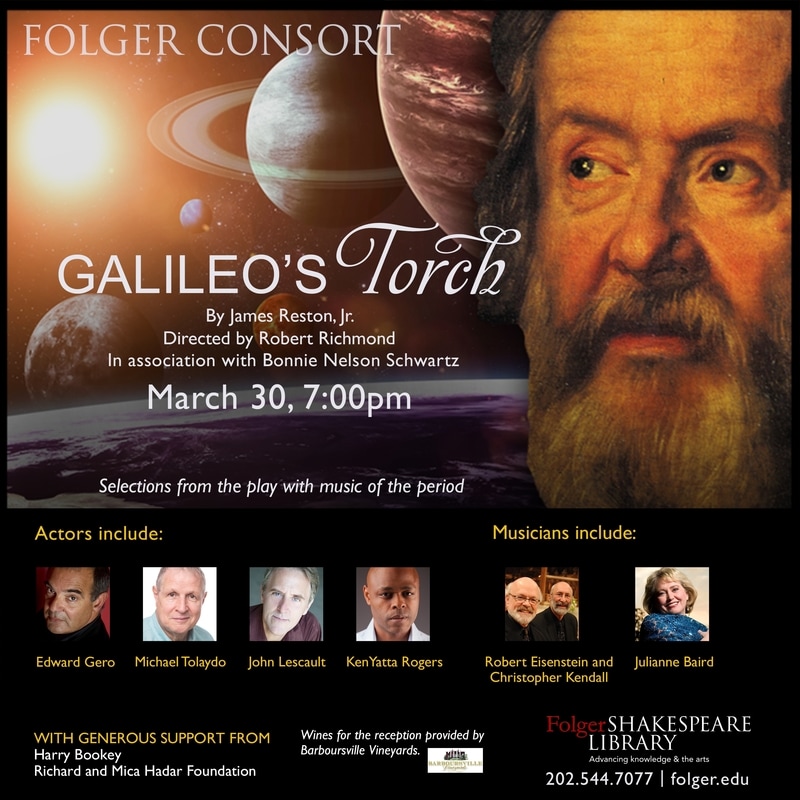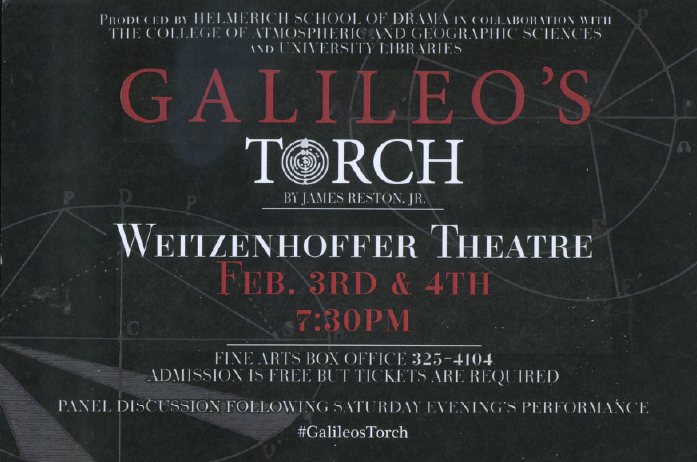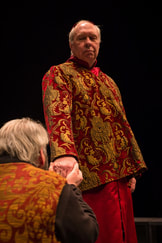Four Plays
In 1979 my first play, “Sherman the Peacemaker,” was staged in Chapel Hill by the PlayMakers Repertory Company. I suppose, in retrospect, that my impulse in writing it was to stick my finger in the eye of the Old South sentimentalists, since General William Tecumseh Sherman, who marched from Atlanta to the sea and broke the back of the southern resistance in the American Civil War, was the preeminent villain in Southern mythology.
The play had its problems, but I fell in love with the theatre. So much of a writer’s life is solitary, and here was a chance to work with other artists collaboratively, hopefully to create together something unique. I was to learn some stern lessons about the division of labor in the theatre, especially the star system, and gain a little humility about the proscribed role of the playwright. “That’s an acting question, isn’t it?” a veteran actor turned to me in rehearsal, when as a rookie playwright I suggested how one of my precious lines should be read.
The play had its problems, but I fell in love with the theatre. So much of a writer’s life is solitary, and here was a chance to work with other artists collaboratively, hopefully to create together something unique. I was to learn some stern lessons about the division of labor in the theatre, especially the star system, and gain a little humility about the proscribed role of the playwright. “That’s an acting question, isn’t it?” a veteran actor turned to me in rehearsal, when as a rookie playwright I suggested how one of my precious lines should be read.
|
Luther's Trumpet
May-June 2021 Luther’s Trumpet is an adaptation of Reston’s 2016 book, Luther’s Fortress. Galileo changed the history of science forever, and Luther changed the history of religion forever. As theatrical characters they are both dynamic, bombastic, flawed, and irresistible. The audience will leave the play, I hope, with important questions to ponder. For the 2021 production, Luther's Trumpet adapted to the global pandemic and the performance was done in a hybrid format with some in person and other streamed performers. View PDF of virtual program |
|
Luther's Trumpet
September 22, 2018
September 22, 2018
|
Sherman The Peacemaker
June 6, 2015 After a triumphant debut last summer with James Reston, Jr.’s historical epic “Galileo’s Torch” that went on to stage two performances of the play at the Italian Embassy in Washington, the Stone Hill Players return on Saturday, June 6, with a new drama by Reston. Sherman the Peacemaker tells the story of the last days and immediate aftermath of the Civil War, as General William Tecumseh Sherman completes his “march to the sea” across Georgia and the Carolinas, and secures the surrender of General Joseph E. Johnston – the “after Appomattox” surrender that is less celebrated, more controversial, and equally important to understanding America after the war. |
Lower left picture: the playwright with Abraham Lincoln actor, former and current Clinton aide, Sidney Blumenthal.
|
|
Galileo's Torch
June 7, 2014 "Reston’s work replays the 17th-century trial of Galileo Galilei — a compelling tale of what happened when the astronomer-mathematician violated Catholic dogma by asserting that the Earth orbits the sun. Galileo was summoned before the Inquisition, put on trial and threatened with torture in a clash of science and religion that still resonates today." - Frances Stead Sellers Washington Post February & March 2017 Galileo's Torch was performed on February 3, 2017 and February 4, 2017 at the University of Oklahoma and on March 30, 2017 at the Folger Shakespeare Library in Washington DC July, 2017 Galileo's Torch was performed at Castleton Festival in July of 2017. |
Jonestown Express
1983
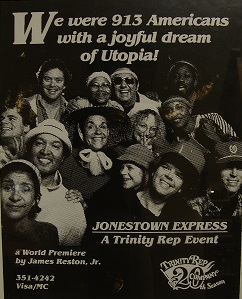
Jonestown Express, Reston's second play went up at the Trinity Square Repertory Company in Providence, R.I. “Jonestown Express” was the third iteration of his Jonestown obsession and focused on the unknowable: the nature of choice at the end of four of Jones’s followers.
Reston tells us about this time: "My experience at Trinity Rep, where he was made an artistic associate for a year, was surely the most satisfying artistic experience of my career, because I got to work with a wonderful, brilliant, iconoclastic director named Adrian Hall." He described his collaboration with Adrian in the essay called “Combing.”
